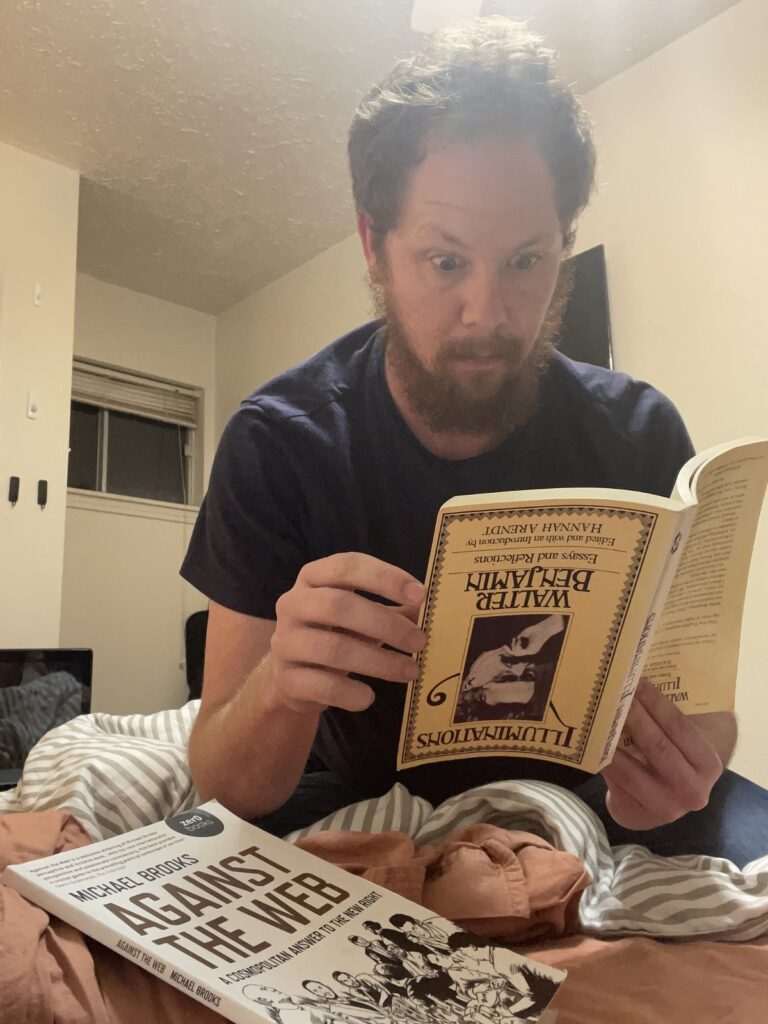“This song was inspired by my engagement with the philosopher Walter Benjamin, who defined fascism as the aestheticization of politics, and who in response thought we needed to politicize art. He committed suicide shortly before being captured by the Nazis. I don’t normally make political art but I think the proto-fascist currents which have been bubbling up need to be addressed squarely and unequivocally, and this song is my meager attempt to do so. I don’t think Oliver Anthony is, himself, a fascist, and I actually quite liked his song until the verse randomly hating on welfare recipients. Whatever his own political orientation, what made me nervous was how quickly and efficiently it was sucked up into the right wing algorithm, appropriated by the tendrils of a proto-fascist movement which is genuinely unsettling to me. As with any of these fabricated culture war controversies of the American right (see: Jordan Peterson, Dave Rubin, about 83% of Joe Rogan, etc.), the song trended very quickly, made its fans feel righteously indignant and under attack, and then dissipated into the void which lies at the center of our media ecosystem.” – Matthew Squires
Matthew Squires is a singer-songwriter based in Austin, TX.
Today he will be releasing a new single and corresponding music video called “Poor Men Southeast of Portland.”
Equal parts ironic and earnest, Squires’ new single is an enigmatic piece of satire aimed at Oliver Anthony, whose song “Rich Men North of Richmond” went viral last summer and served as an anthem among the American right. He claims it was written by a parallel universe’s version of Oliver Anthony, named Anthony Oliver.
Matthew Squires’ official statement on the song is as follows:
“Oliver Anthony told Joe Rogan that he chose ‘Oliver’ as his stage name in honor of his deceased grandfather. He was nostalgic for a more innocent time, when hardworking, God-fearing white men got a
little respect (he forgot to mention how that respect was at the expense of everyone else’s, or how it was largely enabled by unions). Meanwhile, in a parallel universe, Anthony Oliver told Roe Jogan his name was inspired by Casey Anthony. He was nostalgic for a more innocent time, when Americans could still unite around our fleeting spectacles of controversy, and weren’t yet confused as to which ones were astroturfed by right wingers.”





